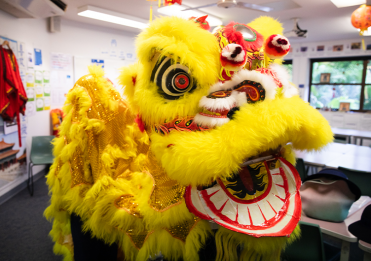What better way, I thought to myself, to lead into an essay on the centrality of conversation to the learning and teaching of English, than to stage—via the twin magics of the Internet, and cut and paste— a conversation between three notables, talking in their own words about the importance of conversation:
‘The most fruitful and natural exercise for our minds is, in my opinion, conversation,’ intoned Michel de Montaigne with all the gravitas that having been a noted philosopher for four hundred years confers.
Jane Austen registered her agreement by show-offily quoting from one of her own characters, ‘My idea of good company, [M. de Montaigne], is the company of clever, well-informed people who have a great deal of conversation; that is what I call good company’.
Having listened intently to his sage interlocutors, Truman Capote added sardonically, ‘That’s why there are so few good conversations: due to scarcity, two intelligent talkers seldom meet’.
Conversation is vital to English. I don’t only mean those between teacher and student, and student and student. I mean also that English—by studying texts that others have written and studied—allows us to get into conversations that span centuries, cultures and traditions. English is all about listening, considering, pulling apart and eventually making our own contributions.
The fact that we might be listening to a 17th century poet rather than a 2018 politician is immaterial. We take in what is said, prise apart its workings, weigh it up and then respond to it. I am all too aware that quite often in adult conversations the responding regrettably happens before any of those other processes, but school is the place for lofty goals, even and especially if parliament and Twitter don’t live up to them.
Let me show you what this conversational training looks like. In spatial terms, it looks like arriving at ‘my’ classroom to find that the Year 10 Literature girls have been having another ‘dinner table’ lesson, and have quite literally pushed the desks into a dining configuration to better facilitate their discussion of a meaty issue from Fahrenheit 451. It also looks like my other classroom, the School’s main boardroom, where English Extension lessons have taken on a schmancy and vibrantly discursive flavour.
The ‘Extensioners’ share the boardroom table not only with each other, but with literary and political theorists from the past two centuries. With a bit of practice, the girls learn to converse with the most significant thinkers of this and the past century: ‘Well I agree with you to a point, Monsieur Lacan, but in terms of Bronte’s depiction of feminised madness, I align more closely with our friend Monsieur Foucault’s position. What do you think, Mme de Bueauvoir? Ms Butler?’.
The process of migrating to the adults’ table starts early in our classes. Last year, Year 8 students got their conversational call-up by participating in a unit on refugees. They studied a wide range of texts relating to this most pressing and profound of global issues, and then produced their written or spoken text, in response to what they had found. Units and tasks like this one are vital not only to the girls’ development as informed and lucid contributors to the big conversation, but also to their sense of agency and empowerment, fully entitled to form, hold and present a viewpoint.
I was privileged to be on the team that wrote the new English Syllabus that our current Year 10 students will be the first to complete in 2019 and 2020, and can report without breaching any Chatham House rules, that the notion of Queensland students participating in big conversations was central to our ruminations. The very first unit of Year 12 is called ‘Conversations about Concepts in Texts’ and the second is called ‘Conversations about Issues in Texts’.
The former looks at a big idea that has been explored in two literary texts. Students analyse and reflect on these contributions to the big chat from their own 2020 points of view. We in the English Faculty are currently having our own conversations about which ideas and which texts to use—women’s agency in Jane Eyre or Pride and Prejudice and the excellent recent film adaptation of Brooklyn? Haves and Have Nots in The Great Gatsby and the thought-provoking documentary Park Avenue? What it is to be post-human in Never Let Me Go and Bladerunner?
The second unit is even more obviously designed to place students in the conversational fold. They will produce persuasive speeches arising from their studies of the media’s treatment of topical, global issues.
This very deliberate focus on conversation is—in the broadest sense—a rite of passage. It is an invitation to our girls to make the transition from the kids’ table to the grown-ups’. They do it well, and we in the English Faculty are confident that Girls Grammar’s young women will head out into the world with alacrity, ready to address the scarcity problem to which our friend Mr Capote so wittily and aptly referred.
References
Montaigne, M. D., & Screech, M. A. (2004). The essays: a selection. London: Penguin.
Austen, J., Kinsley, J., & Lynch, D. S. (2004). Persuasion. Oxford: Oxford University.




